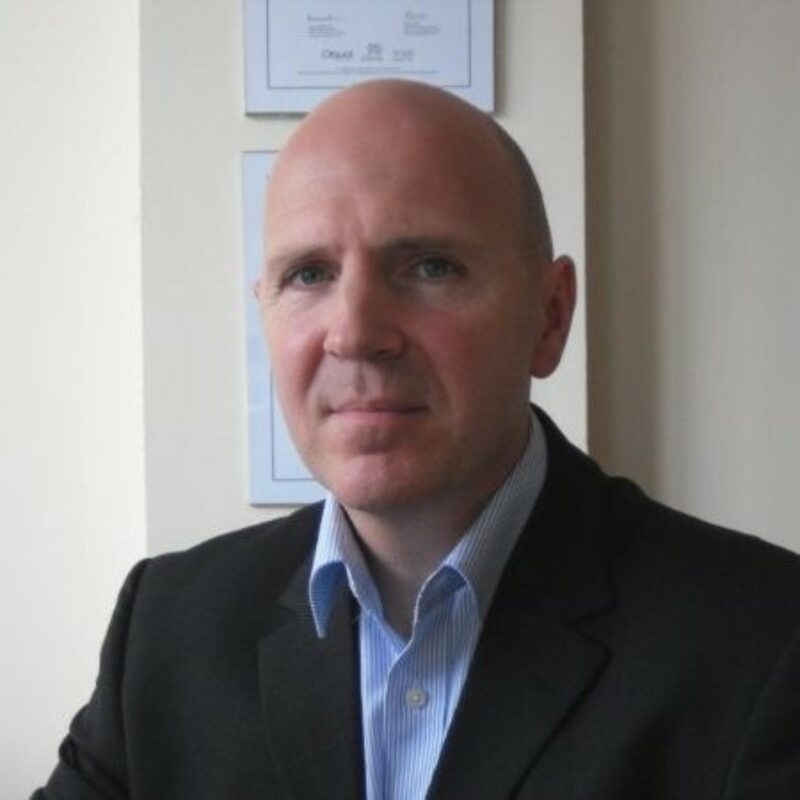Cameron Waldron MSc, BA, DipPFS, ADipSPM is Lead Consultant at the Financial Wellbeing Lab. Having originally worked in Remuneration & Benefits as a HR Manager, he has run independent financial adviser business New England Financial Solutions for over 20 years. He recently completed a MSc in Psychology specifically focusing on financial wellbeing and how to improve the behaviours that drive it.
Cameron Waldron will join IFW Board Member and financial wellbeing coach Lorraine McFall for the IFW Tools & Tactics session at 9.30am on Thursday 20th June to discuss a new tool developed to ‘Empower clients to take control of their Consumer Duty rights.’
Book your free spot for Tools & Tactics here.
How would you summarise your passions, both in and out of work?
I care about my clients and always try my best to deliver good value and the right outcomes for them in a professional and timely manner. With The Financial Wellbeing Lab, it is all about using the empirical method and best learning practices to drive genuine financial education in the workplace and the community.
What I like doing outside of work is, above all, spending time with my family and good friends. I also enjoy listening to music, travelling, waterskiing, the real Australia, and following St. Kilda FC in the AFL and the Cincinnati Bengals in the NFL.
What’s your happiest memory?
I’m happiest when my family and friends are happy.
What one thing do you wish you’d been told about finance when you were 15?
By 15 I had to earn my way due to family circumstances. I wish I’d had a bit more confidence then.
What made you want to work in finance?
I didn’t want to work in finance. Somehow, I drifted into it via remunerations and benefits whilst a HR professional. As the Lead Consultant for the Lab, I am lucky enough to work with an inspiring team of qualified experts in psychology, education, business stewardship, HR, and financial compliance. We are driven by the highest academic standards in designing and developing financial education to support financial wellbeing across all age groups.
How did this lead to you becoming a Certified Financial Planner?
It was never by design. With industry qualifications in Superannuation and Pension management, I drifted into the planning industry, which suited my family lifestyle needs.
How do you combine these skills with your Master’s in Psychology?
Psychology at this level was an eye-opener. Becoming effective in carrying out empirical research and learning the very difficult skills involved in the critical evaluation of research papers and books was challenging. As a team at the Lab, we work hard to be up to date with the latest research, its methodological reliability, and its practical application. Combining these skills has enabled the Lab to design effective financial skills education here and abroad, in the workplace, in schools, and in the community. As a Financial Planner, the Lab has also developed simple tools to understand clients better than before that strip away the behavioural biases that many advisers have become unnecessarily obsessed with.
How would you describe your approach?
Ours is a disciplined approach that harnesses the expertise and interpersonal skills of advisers. With a little training, planners can use a set of reliable tools that enhance their understanding of their individual clients’ characteristics and needs. Our process empowers the client and adviser to design a service arrangement that delivers good value, as judged by the client. Every service agreement is different and delivers consumer duty more effectively.
What prompted you to join the Institute for Financial Wellbeing?
Having previously run financial wellbeing skills training in the early 1990s in Australia and being at the start of my renewed studies in this area, I was fascinated to see how the IFW would develop.
What drew you to financial wellbeing in the first place?
In a previous profession I had run financial education programs and understood the difference between financial wellbeing and subjective financial wellbeing. I was curious to grasp the reality based on multi-disciplinary empirical research.
What’s your top tip for someone wanting to improve their financial wellbeing?
In the workshops that we run here and abroad, and highlighted in many studies, the combination of digital spending controls and establishing an emergency fund are most often evidenced as having the greatest impact.
Who or what is your favourite wellbeing guru, podcast or book?
I don’t trust anyone who is a self-proclaimed expert or guru in this area, especially when they don’t have the qualifications to back it up. Ancient philosophies, passing conversations, anecdotes and interesting books are not the basis for genuine research. We choose what we read, and we should interpret that information in relation to other research and its methodological reliability using the empirical method.
My favourite textbooks or peer-reviewed papers are often very dry. But as a great introduction into the world of individual mental health complexity, The Balanced Brain by Professor Camilla Nord is a terrific book with some insightful messages. As an accessible way into the importance of critical evaluation, Rutger Bregman is another author I have a lot of time for.
What are you doing to advance your own financial wellbeing?
Where possible, I remind myself of my small achievements with money. But not everything is in my control and that’s fine. Luck plays a huge part in all our lives and should be better acknowledged. The wellbeing of my family, my friends, my community, and the environment all matter and affect me. Financial wellbeing is just one element of mitigating unhappiness amongst many factors, some of which are outside our control. Just managing is ok for me.
Is there an IFW member you would like to see featured in the IFW Showcase? Send an email to members@ifw.org.uk and let us know.

